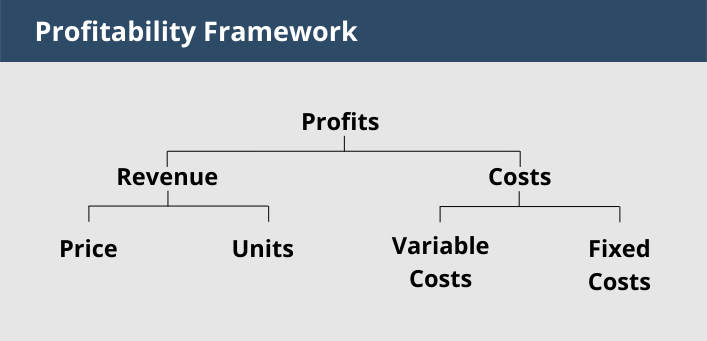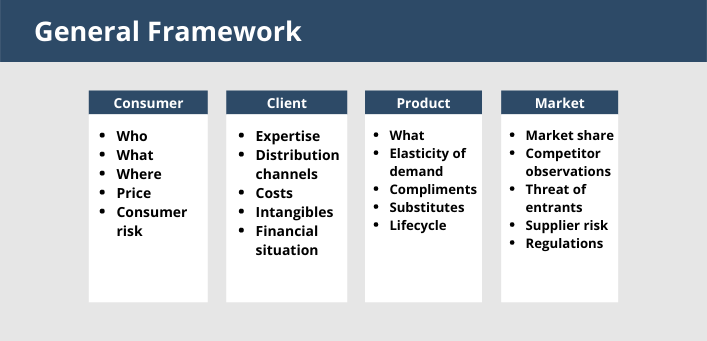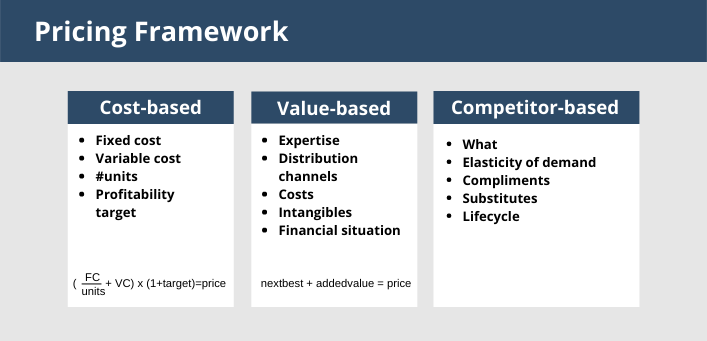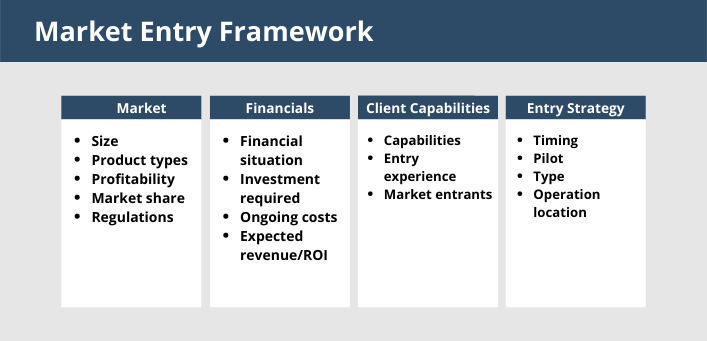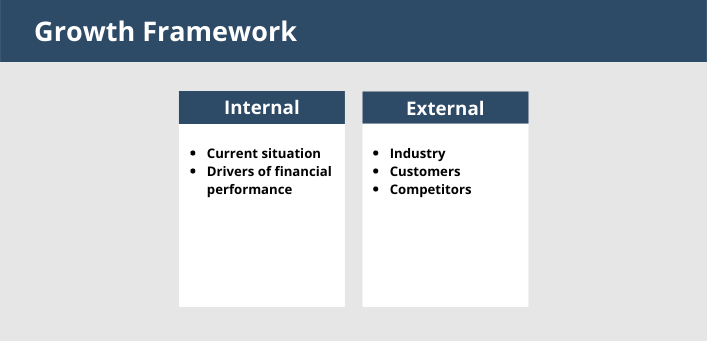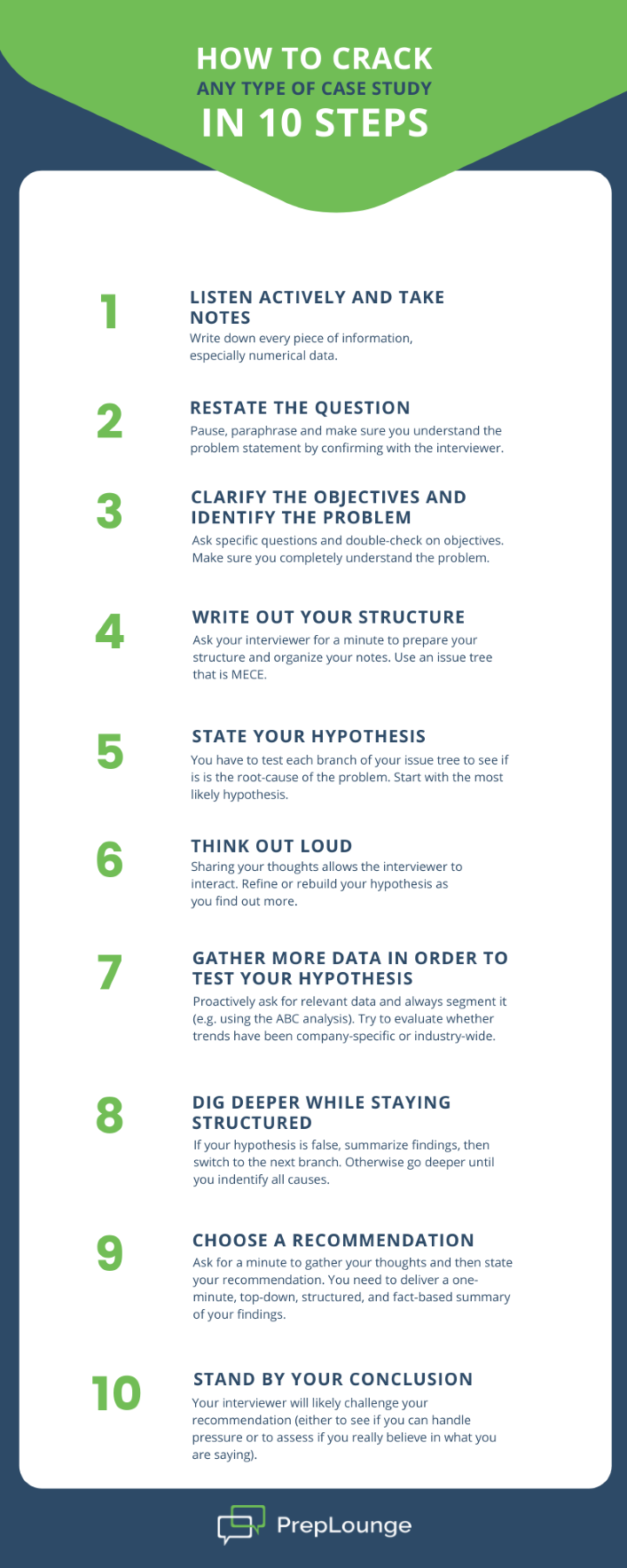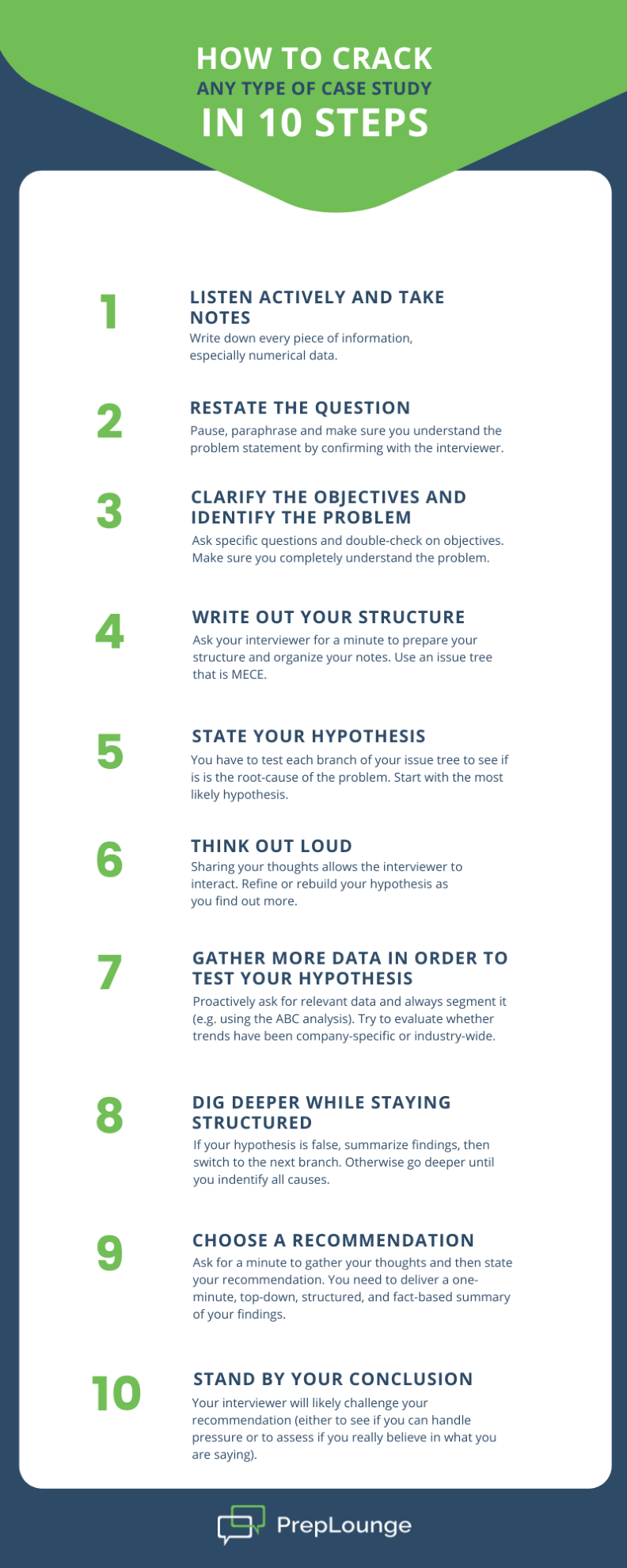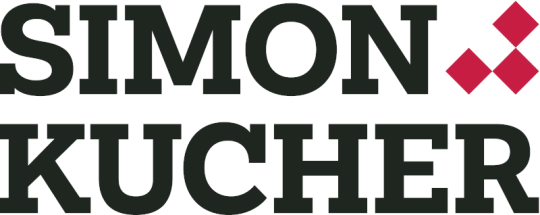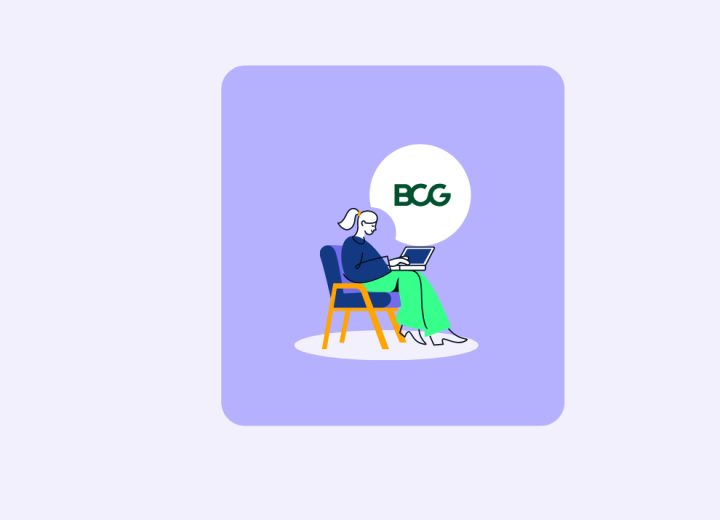1.1 Learn the Theory
By reading this article, you have already taken the first step of getting to know what case interviews are all about. Well done! You can now proceed by learning the theory you need to know to solve them. In general, you should learn how to:
In our Case Interview Basics, you can find all the necessary basics.
1.2 Gradually Develop your Business Intuition
As you need to have good business sense to successfully pass your case interview, you should dedicate some time before gradually building up your business intuition. The earlier you start doing this, the easier it will come to you. All you have to do is make it a habit of regularly reading business publications or magazines. You can choose new insights from McKinsey, Bain, and BCG or find other sources that appeal to you. While you do that, try to develop a basic knowledge of business, strategy, and industries, such as retail, airlines, telecom, banking, natural resources, and tech.
1.3 Bring your Mental Math up to Speed
All case interviews involve doing math without a calculator which is why brushing up your math skills should be a constant part of your daily prep plan. Practice until you are a hundred percent comfortable doing basic additions, subtractions, divisions, multiplications, and growth rate calculations in your head. Read our article on Fast Math and make use of our mental math tool in order to practice your efficiency. This will greatly ease the pressure if confronted with a math problem in your interview.
Knowing the shortcuts for a wide range of calculations will help you simplify math problems. For example, break down complex math problems into multiple smaller operations:
97 x 53
= (100 - 3) x (50 + 3)
= 5000 + 300 - 150 - 9
= 5141
1.4 Practice Makes Perfect
Take a look at our vast Case Library with which you’ll be prepared for all possible case types. Our case collection includes cases that have been used in case interviews in the past. Solving cases on your own can give you a first feeling for them, but the only way to improve the skills you need to pass your interview is to put yourself in a case interview situation. Find a few outstanding candidates you can practice with and practice cases on a regular basis. The more perspectives you can get, the better. Feedback will help you improve.
On PrepLounge, the world’s largest case interview community awaits you. Simply schedule or accept a mock interview with another candidate on our Meeting Board! Here is how it works:
- Schedule: After you and your case partner have confirmed the mock interview on the Meeting Board, your meeting is set and should be visible on your dashboard.
- Communication: We recommend you directly get in touch with your case partner to confirm your method of communication during the interview (e.g. Skype) and case preferences.
- Interview: During the back-to-back meeting you will take turns with your case partner in order to play both interviewer and interviewee roles. Don’t neglect the part of the session where you play the interviewer role. It will help you notice points of importance and adapt your approach accordingly.
- Case: There will be two PrepLounge cases randomly selected by default, but you can also change them and pick one of our other 190+ cases or use your own case.
- Feedback: This is the most important part of your mock interview as it helps you to improve your case performance. Please give valuable feedback to your case partner. You would want them to do the same!
1.5 Get Support from Experts
To make your case interview preparation as effective as possible, we recommend you also invest in coaching sessions with experienced top consultants. Our experience shows that this will be worth it, as it significantly increases your chance of getting your dream job offer (by four to be exact). Our experts know exactly what interviewers want and can work with you on every aspect of your case performance, whether it is structure, personal fit, confidence, or communication. They can even give you valuable networking tips and help you get a referral.
We offer you a transparent list of coaches, including their professional and educational backgrounds, top skills, individual approaches, reviews, and recommendation rates. This allows you to individually choose the perfect experts for your coaching sessions. You may also benefit from our CoachingPlus Package that comes with an overall discount.
1.6 Learn and Keep Track of your Progress
You can do as many cases as you like, but if you do not learn from them, you will not going to improve your case performance. This is why you should do the following: At the end of each case that you solve, whether it is on your own, with a case partner or expert, write down in your own words what mistakes you have made and what you learned. After a few days, redo the case and apply your learnings to ensure that you are making progress. Keeping track of your improvements will keep you motivated and make sure that you don’t repeat the same mistakes.
1.7 Don’t Forget About the Personal Fit
It doesn’t matter how much you ace the case, but if you are not a personal fit for the company, you will not get the job offer. After all, consulting is a people’s business, that includes teamwork and spending a lot of time with your colleagues. In order to ace the personal fit part of the interview, it is important that you understand what an interviewer is looking for in a candidate to decide that he or she is a personal fit. Typically, the interviewer has three key questions in mind.
Then, you have to learn how to convey to the interviewer that you comply with what he or she is looking for. Practice your answers to personal fit questions with other candidates or experts:
1.8 Practice Confidence
The more you practice, the more confident you will automatically feel. However, feeling confident is not equal to seeming confident. Sometimes you can come across as insecure without even noticing and this can be due to minor communication style habits. Therefore, you should ask your PrepLounge case partner or expert to take your verbal and non-verbal communication into account and to give you feedback on your level of confidence or insecurity. Try to focus on the following aspects during your practice:
- Sound of your voice. A monotone voice or speaking too fast gives an impression of insecurity and a poor communication style. To avoid that, you can listen to podcasts with great speakers for about 30 minutes to one hour per day. After a couple of days, you will start to speak in a similar manner, as you will absorb their communication style.
- Smile. Smiling can be a powerful element to show that you enjoy the interview (and interviewer) and are not afraid. You can force smiles (obviously not too much) in case you get feedback that you seem too serious.
- Eye contact. You should do not need to constantly look the interviewer in the eyes, but you should not look away when he or she asks you something and you should not stare, either.
- Ability to break the ice. Confident people are not afraid to start small talks with interviewers from the beginning. Keeping silent creates less connection and may be considered a sign of lack of confidence.
- Posture. You should try to keep straight in the chair most of the time. Leaning too much towards the interviewer can be seen as a lack of confidence.
1.9 Take Breaks
In total you should prepare for well over 50 hours in up to a 6-week time period, practicing on a daily basis. This can be exhausting, and we know that a lot of candidates struggle with a lack of motivation and focus, especially after an intense period of case prep. This is usually because they forgot to implement regular breaks in their prep plan. Professional athletes will always take time to rest to give their muscles time to regenerate, and so should you for your brain muscle. A good strategy is to develop an evening and morning routine that gives you time to relax and maximizes your energy level for the prep during the day. Here are some examples of what you can do:
- 15-20 minutes of exercise in the morning or evening
- A cold shower in the morning
- Meditation or writing a journal
- Define three important things to do for the next day and allocate the time for all activities while doing the most important ones first
- No social media one hour after you wake up and before you go to sleep
- Get enough sleep (at least 7 hours)
- Take breaks between each case or intense case practice session and do something totally different (e.g. workout, play video games)
